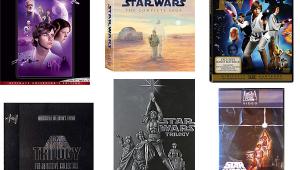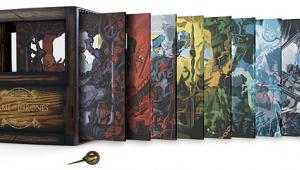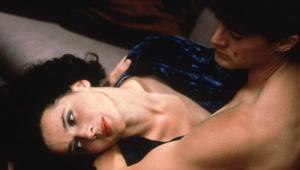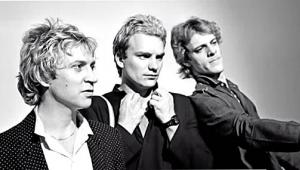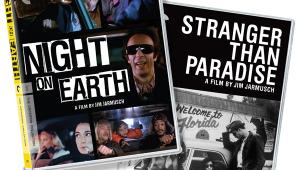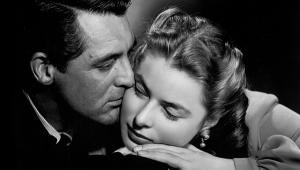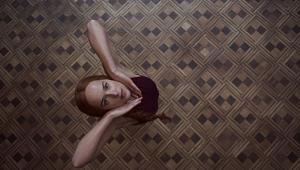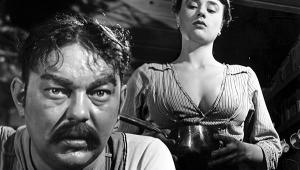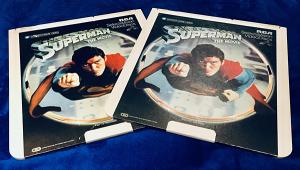The Lord of the Rings: The Two Towers
Picture***1/2
Sound****
Film****
Director Peter Jackson's film adaptation of J.R.R. Tolkien's classic saga, The Lord of the Rings, continues with the second of three films: The Two Towers. The surviving members of the Fellowship of the Ring have split up into three groups, with Frodo and Sam continuing their journey to destroy the One True Ring, Merry and Pippin captured by Uruk-hai, and Aragorn, Legolas, and Gimli helping the besieged Kingdom of Rohan fight off the forces of the evil Saruman.
 This brief description doesn't begin to suggest the impact of this film, nor will I try to do so here. Only the word monumental does it justice. If it has a failing, it's the fact that, as the middle episode of a trilogy (it's not a sequel; the story was intended from the beginning to be spread over three films), it leaves the viewer wanting more. But unlike the ending of the recent Matrix: Reloaded, it doesn't just stop like an end-of-season TV cliffhanger. You know there's more to come, but you feel satisfied, not teased. (A word of warning: Even if you've read Tolkien, don't jump into the saga with this second film unless you've seen the first. And if you're not at all familiar with this story, that advice goes double.)
This brief description doesn't begin to suggest the impact of this film, nor will I try to do so here. Only the word monumental does it justice. If it has a failing, it's the fact that, as the middle episode of a trilogy (it's not a sequel; the story was intended from the beginning to be spread over three films), it leaves the viewer wanting more. But unlike the ending of the recent Matrix: Reloaded, it doesn't just stop like an end-of-season TV cliffhanger. You know there's more to come, but you feel satisfied, not teased. (A word of warning: Even if you've read Tolkien, don't jump into the saga with this second film unless you've seen the first. And if you're not at all familiar with this story, that advice goes double.)
You also come away aware that when the Ring trilogy is complete, it's likely to be the epic by which future epics are judged. More than that, it may well be the most spectacular cinematic accomplishment within any of our lifetimes. Despite the series' spectacular financial success, few film companies will again be willing to risk the considerable cost (about $300 million, by most reports) of a project of this magnitude.
Despite my raves, not everyone will fall in love with this compelling mixture of drama and fantasy. In fact, I didn't much like the first film, The Lord of the Rings: The Fellowship of the Ring when I first saw it in the theater. I hadn't read Tolkien's work, and while familiarity with the books isn't necessary to enjoy the movies, it meant that I had no preconceived opinions. But some things take time—like a great piece of music that somehow doesn't get to you the first time around, but later redefines your musical universe. By the time The Two Towers rolled around, I was hooked, and saw it twice in one of the best theaters in the country—the Mann Village in Westwood, California. The print was gorgeous.
This DVD doesn't quite capture the visual impact of that theatrical experience, but it comes close. Like the 2-disc set of Fellowship, squeezing the full movie onto one disc has resulted in a slightly soft-looking DVD. Some of the close-ups are crisp, but few medium shots are—at least as seen blown up on an 80-inch-wide screen. The transfer is by no means bad, and the producers wisely avoided compensating with a heavy dose of edge enhancement. Moreover, the shadow detail in the film's many dark scenes is excellent, particularly the all-important battle of Helm's Deep. But the 4-disc boxed set of Fellowship gave us an image noticeably better than the 2-disc release of that film—something we hope will be the case when The Two Towers: Platinum Series Special Extended Edition 4-DVD edition comes out November 18. In fact, if you're a fan of the film and haven't already picked up this theatrical version, you might want to wait for that set. If it follows the pattern of Fellowship, it will not only offer an improved picture but an added DTS soundtrack, a library of features that will make the average DVD look like a quickie budget release, commentary tracks, and, most important, a significantly extended, and even better, cut of the film itself.
DTS track or not (here, not), the sound on The Two Towers (auditioned in standard 5.1-channel mode) is stunning. From Howard Shore's operatic, classic-to-be music score to the clash of armor at the battle of Helm's Deep, you'd better practice picking up your jaw from the floor. While there's no individual sequence here quite as demo-intensive as the Balrog sequence in Fellowship, the overall impact of The Two Towers' sound is every bit as impressive. If I have a criticism, it's of the track's slightly over-the-top brightness in the louder scenes (the DTS track in the Special Extended Edition should take care of that). And, like Fellowship, this is a very "hot" soundtrack; it's recorded 8–10dB louder than the average DVD.
The Two Towers is available in widescreen and pan&scan editions, but it would be an insult to its makers to watch this film in anything other than its full wide-screen glory.
Even on this "limited" release, there's no shortage of juicy extras: 2 hours of them, in fact, including behind-the-scenes "making of" programs, featurettes on various aspects of the story and production, a zillion trailers, teasers, and TV spots, a music video, an inside look at the upcoming Extended Edition, and a 10-minute preview of the final film, The Lord of the Rings: The Return of the King. Watching the latter will make you want to see the movie tomorrow, but you'll just have to wait a few weeks. But if this set follows the pattern of The Fellowship of the Ring, it's unlikely that any of its extra features will be duplicated in the 4-disc Extended Edition.
If there's space in your collection for only one version of this film, our experience with the first suggests that you should wait for the Extended Edition. But if an extra half hour of an already long film isn't your cup of tea, and the extras here are more than sufficient for you, by all means go for this 2-DVD set. Me? I want both.—TJN


